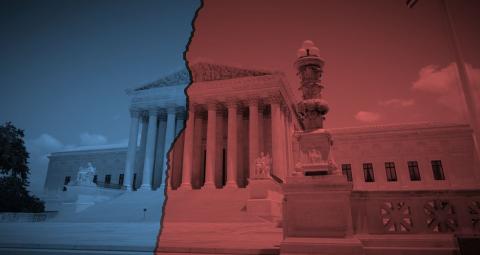Judge Brett Kavanaugh now proceeds to his confirmation hearing as President Trump’s nominee to the Supreme Court and the possible replacement for Supreme Court Justice Anthony Kennedy.
Advocacy groups were a step ahead of the mainstream media in their prepared and pre-titled digital political ads. Biased, partisan bios were conjured for each judge on the short list of possible nominees as well as the narrative warnings. Ad cash and domain names were secured well in advance of an announcement. No requirements for confirming information - they can go on rumors and conjecture. Some - ahem Judicial Crisis Network, filled its arsenal before Justice Kennedy's retirement.
In a bid to mop up it's 2016- presidential-campaign-Russian-disinformation-debacle, Facebook has given us a tool to get a better idea of who is publishing the political ads. The who, what, when, and where, regarding its sponsored political ads are searchable - all except the 'how.' As in, “How were these ads paid for? Specifically?” It is a common and essential question for some electoral reformers.
A few easily searchable examples:
Batting for the conservative side, The Judicial Crisis Network launched a $1.4 million 'Confirm Brett Kavanaugh' ad buy on national cable and digital platforms. JCN ran another one, #AnotherGreatJustice, which is a bio spot, just after Justice Kennedy announced his retirement.
Demand Justice, a left-of-center 501(c)(4) is billed as a judicial nominee advocacy group. It was formed this year and is stacked with Clinton and Obama alumni. They’re still smarting from 2016 and shuffled together ads on Monday urging voters to “stop Trump’s SCOTUS takeover.” According to a New York Times article the director of Demand Justice, Brian Fallon “said he was more than halfway to this initial fundraising goal," and said in May 2018 that he “expects to raise $10 million in its first year.”
As tech companies step up their transparency, the Federal Election Commission is still figuring out its role. A few tough spots include deciding which ad types must label themselves as political, as well as which kind of ad or even mention denotes a requirement to disclose the funding source. So while efforts have been made to tack on the word 'transparency' to the Facebook business model, still campaign messaging will find a way to skirt rules and grow using technicalities.
